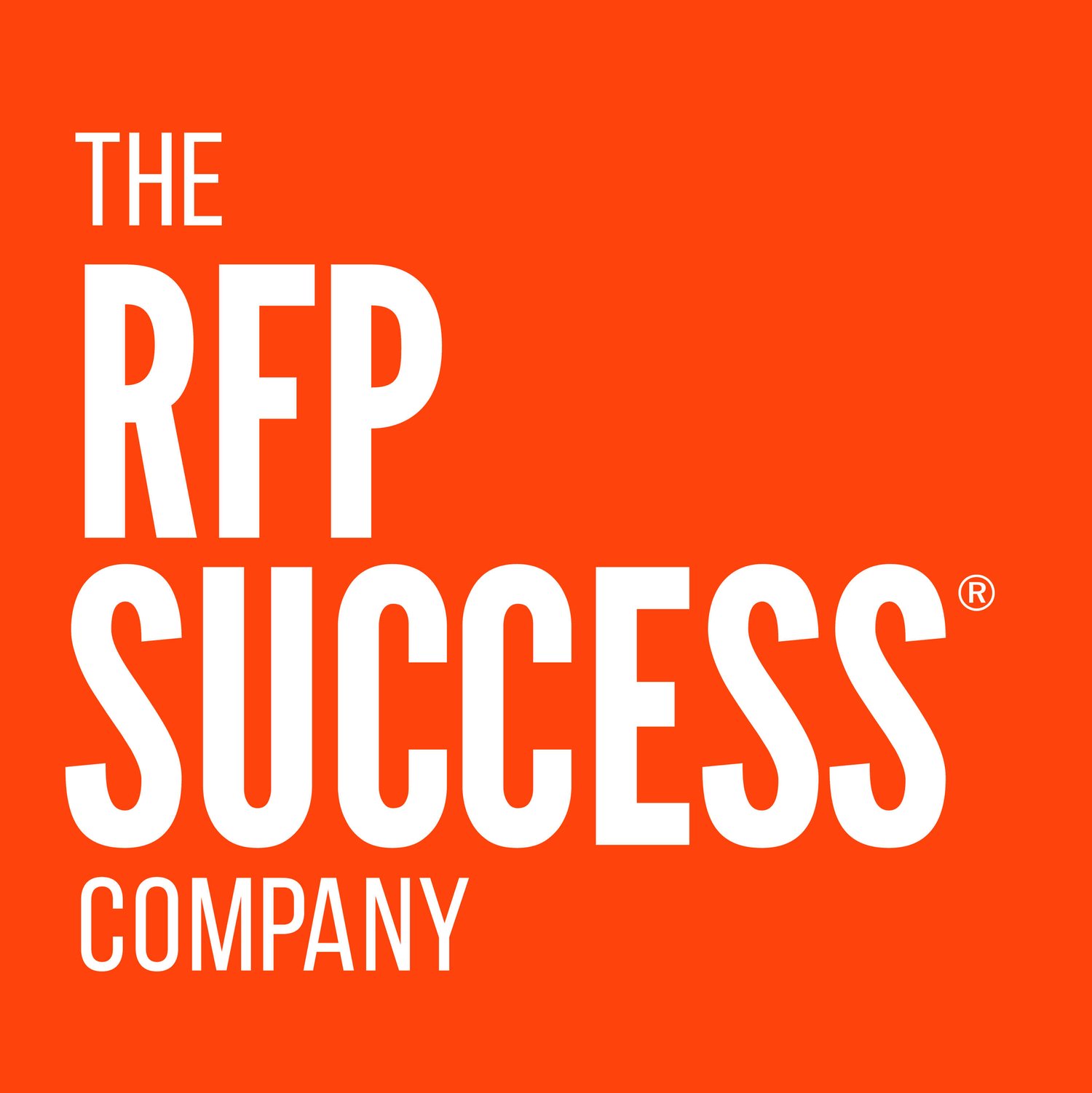Choosing The Best Rfp Response Service Provider: Key Factors To Consider
When it comes to selecting an RFP (Request for Proposal) response service provider, the decision can significantly impact the success of a project or business objective. It is crucial to consider various factors that contribute to the overall effectiveness and efficiency of the chosen service provider.
A well-prepared and strategically crafted RFP response not only increases the chances of winning contracts but also reflects positively on an organization's competency and professionalism. This article aims to provide valuable insights into key factors that need thorough evaluation while selecting an ideal RFP response service provider.
An in-depth analysis of essential elements such as experience and expertise, quality of work, communication skills, technology capabilities, pricing, and value can prove instrumental in identifying a suitable partner for handling crucial RFP responses. By understanding these factors, decision-makers will be better equipped to make informed choices while ensuring their organization's best interests are served.
Inevitably leading towards increased opportunities for growth and expansion by securing profitable contracts with appropriate partners.
Key Takeaways
• Evaluating a provider's background, experience, expertise, and team qualifications is crucial in assessing their capabilities.
• Effective communication skills, a client-focused approach, collaboration, and adaptability are essential for developing tailored solutions.
• Technology capabilities, customization options, pricing models, and overall value should be considered when selecting a provider.
• Cost-effectiveness, ROI, financial flexibility, and investment analysis are necessary for evaluating the long-term benefits of engaging a service provider.
Experience and Expertise
Evaluating the experience and expertise of potential RFP response service providers is crucial in ensuring the selection of a proficient and knowledgeable partner for successful proposal development. One method to assess experience and expertise involves examining a provider's background, which includes their years of operation within the industry, as well as their previous clients and project successes.
Additionally, it is essential to inquire about industry knowledge, ensuring that the service provider has specific expertise in addressing RFPs within target sectors or markets. This will guarantee that they possess an understanding of unique requirements or challenges associated with specific industries. Furthermore, assessing their capacity to develop effective proposal strategies demonstrates their ability to identify key elements needed for winning bids.
Another important aspect when evaluating experience and expertise is analyzing the qualifications and capabilities of each team member working on proposals. A highly skilled team should consist of professionals who possess extensive knowledge in various disciplines relevant to the RFP content such as technical writing, graphic design, financial analysis, project management, among others.
By engaging with a service provider that employs experts from diverse fields increases the likelihood of submitting comprehensive proposals that address all aspects stipulated by clients' requirements. In conclusion, gauging both individual qualifications and collective experience allows organizations seeking RFP response services to establish partnerships with providers capable of delivering high-quality results tailored specifically for a broad range of projects.
This ensures continuity between sections while maintaining consistency throughout entire proposals leading up to an evaluation focused on quality workmanship exemplified through past experiences coupled alongside innovative approaches applied towards future endeavors within this field.
Quality of Work
A crucial aspect to examine is the quality of work provided by potential vendors, as a staggering 47% of businesses report dissatisfaction with their current RFP response services due to subpar output. In order to ensure that the chosen provider delivers high-quality results, it is essential for organizations to assess work consistency and implement quality assurance measures. Work consistency refers to the ability of a vendor to maintain a uniform level of excellence across different projects, while quality assurance involves systematic processes designed to guarantee that the final product meets or exceeds predetermined requirements.
To evaluate the quality of work offered by potential RFP response service providers, organizations can request samples and references from previous clients or projects in order to gain insights into their performance. Furthermore, they should consider comparing critical aspects such as accuracy of information, clarity of communication, and overall presentation among various vendors using a two-column table:
By carefully examining these factors and implementing stringent quality control procedures, organizations can significantly increase their chances of selecting an RFP response service provider that consistently delivers top-notch results. It would also be prudent for companies to pay close attention to how effectively these providers communicate with them throughout the entire process since this will play an integral role in determining project success or failure.
Delivering Superior RFP Responses: Strategies for Excellence
Communication Skills
Effective communication skills play a crucial role in selecting the ideal RFP response service provider, encompassing aspects such as responsiveness to client needs, collaboration, and adaptability.
A provider's ability to promptly address concerns and provide timely feedback reflects their commitment to achieve desired outcomes for clients.
Furthermore, the willingness of a service provider to collaborate on solution development and demonstrate flexibility in altering strategies according to evolving project requirements is indispensable for fostering a successful working relationship.
Responsiveness to your needs
Selecting an ideal RFP response service provider necessitates considering their ability to promptly and efficiently address your organization's specific requirements, ensuring a seamless collaboration that yields optimal results. A responsive provider will not only have streamlined processes in place but also be able to offer tailored solutions that cater to the unique needs of each client. This can make all the difference in achieving proposal success and maximizing return on investment.
1. Streamlined processes: A responsive service provider should possess efficient workflows and systems designed to minimize delays and expedite project completion while maintaining high-quality output.
2. Tailored solutions: The ability to customize services according to individual client requirements is essential for delivering optimal value and addressing specific organizational challenges or goals.
3. Client-focused approach: A reliable RFP response partner will prioritize understanding your business objectives, industry dynamics, and key concerns, enabling them to craft responses that effectively communicate your strengths while mitigating potential risks.
Evaluating a prospective RFP response service provider's responsiveness ensures that they are well-equipped to navigate the complexities of proposal development while staying attuned to your organization's evolving needs. As you continue exploring potential partners, consider how their level of collaboration and adaptability might influence your decision-making process as well.
Expert RFP response management
Collaboration and adaptability
Collaboration and adaptability play crucial roles in fostering a successful partnership with an RFP response service provider, as they demonstrate the provider's capacity to work seamlessly with your organization while remaining agile in addressing evolving requirements and challenges.
Collaborative innovation is essential for ensuring that both parties can communicate effectively, share ideas, and align on goals to develop tailored solutions that meet the unique needs of each project.
Moreover, adaptable strategies enable the service provider to respond swiftly to changes in project scope or market conditions, ensuring that your organization receives optimal results from the engagement.
In assessing potential RFP response service providers, it is vital to evaluate their ability to integrate with your team, establish transparent communication channels, and maintain flexibility throughout the project lifecycle.
This integrated approach promotes efficiency and allows for more informed decision-making processes.
Furthermore, technology capabilities should be examined closely as they will directly impact the quality of responses generated by the service provider.
By focusing on these key factors – collaboration, adaptability, and technology capabilities – organizations can identify partners best suited for their specific needs and objectives while optimizing resources allocated toward RFP response efforts.
Technology Capabilities
Assessing the technology capabilities of an RFP response service provider is crucial in ensuring a streamlined and efficient proposal process that aligns with organizational objectives. Customization options are essential, as they allow for a tailored approach to addressing varying client needs and preferences. Additionally, technology should facilitate efficiency improvements, thus enabling organizations to submit high-quality proposals within tight deadlines.
To ensure the selected RFP response service provider meets all requirements while remaining cost-effective, organizations must also consider pricing models and overall value offered by each potential partner in their decision-making process.
Pricing and Value
An examination of pricing and value in the context of choosing the best request for proposal (RFP) response service provider necessitates a thorough analysis of cost-effectiveness and return on investment (ROI).
A consideration of cost-effectiveness involves an evaluation of the provider's services relative to their price, ensuring that organizations receive optimal benefits from their investments.
A focus on ROI encompasses not only immediate financial gains but also long-term strategic advantages, enabling organizations to make informed decisions in selecting the most suitable RFP response service provider.
Cost-effectiveness
Evaluating the cost-effectiveness of a potential RFP response service provider necessitates a thorough analysis of financial implications, ensuring that optimal results are achieved without imposing excessive burden on the budget. This entails considering various factors such as budget optimization and financial planning, which play a crucial role in determining the overall value generated by engaging the services of such providers. A comprehensive assessment should take into account not only the initial costs but also any recurring expenses and potential savings, weighing them against expected outcomes to make an informed decision.
Taking these factors into account allows organizations to dissect each aspect involved in partnering with an RFP response service provider, ultimately leading to better financial decision-making. By conducting this analysis, companies can ensure they select a provider that aligns with their strategic goals while maintaining a balance between cost and value. Ultimately, this will facilitate smoother transitions into discussions surrounding return on investment and enable more accurate assessments of any prospective partnerships in future endeavors.
Return on investment
Measuring the return on investment (ROI) for an RFP response service engagement involves a comprehensive analysis of the financial benefits and value generated, which can significantly influence organizational success and growth. ROI tracking is essential to ensure that investments in RFP response services yield quantifiable results, justifying their cost and demonstrating tangible improvements in bid win rates, proposal quality, and overall business performance. To achieve this level of clarity and insight into the effectiveness of RFP response services, organizations should develop robust frameworks for investment analysis that consider both short-term gains and long-term strategic objectives.
The impact of effective RFP responses: * Winning more lucrative contracts * Enhancing brand reputation * Strengthening relationships with clients * Expanding market presence
The importance of rigorous Investment analysis: * Ensuring that resources are allocated wisely * Identifying areas for improvement in current processes * Supporting informed decision-making at all levels within the organization * Encouraging a culture of continuous learning and development
By following a detail-oriented approach to evaluating ROI from RFP response services, organizations can make strategic decisions about how best to allocate resources toward these engagements. Clear communication regarding expectations around outcomes, timelines, costs, risks, opportunities will enable them to establish productive partnerships with service providers that ultimately yield measurable returns on their investments. Furthermore, cultivating an engaging environment where stakeholders across all levels share a subconscious desire for understanding will foster innovative thinking and drive better overall performance while navigating the complex landscape of competitive bidding processes.
Frequently Asked Questions
What is the provider's approach to confidentiality and data security during the RFP response process?
In the labyrinth of data breaches impact, a provider's approach to addressing confidentiality challenges is crucial. A robust strategy includes strict security measures, encryption techniques, and staff training for safeguarding sensitive information during the RFP response process.
How does the RFP response service provider ensure timely delivery of services while maintaining a high level of quality?
RFP response service providers ensure timely delivery and quality maintenance through efficient project management, timely communication with clients, adherence to strict deadlines, and implementation of robust quality assurance processes.
Can the service provider offer any additional resources, such as proposal writing workshops or training sessions, to enhance the internal capabilities of our organization?
Evaluating potential service providers, resource allocation for proposal writing workshops or training sessions should be considered to enhance internal capabilities. Strategic inquiry into additional offerings ensures a comprehensive understanding of the provider's expertise.
How does the RFP response service provider handle potential conflicts of interest, especially if they are working with multiple clients in the same industry?
RFP response service providers, possessing industry expertise, implement conflict resolution strategies to address potential conflicts of interest. They maintain transparency and confidentiality while working with multiple clients in the same industry.
Are there any case studies or testimonials available from previous clients who have successfully won contracts or projects as a result of partnering with this RFP response service provider?
Undoubtedly, client satisfaction plays a vital role in determining success rates. Evaluating case studies and testimonials of previous clients who have triumphed in securing contracts can provide invaluable insights into the provider's efficacy.
Conclusion
In conclusion, selecting an optimal RFP response service provider necessitates careful consideration of several crucial factors. These include:
• The provider's experience and expertise in crafting well-researched proposals
• Their ability to exhibit high-quality workmanship
• Effective communication skills
• Technological capabilities for efficient operations
• Offering competitive pricing with exceptional value
By prioritizing these factors during the decision-making process, organizations can ensure that they partner with a proficient RFP response service provider capable of delivering compelling proposals that captivate stakeholders' attention and secure lucrative business opportunities.
| Factors | Considerations |
|---|---|
| Accuracy | Correctness and completeness of information presented |
| Clarity | Ease in understanding content; logical flow |
| Technology Capability | Importance |
|---|---|
| Customization Options | Allows for personalized solutions that cater to individual client requirements, leading to more relevant and competitive proposals. |
| Efficiency Improvements | Streamlines the proposal process by automating repetitive tasks, reducing human error risk, optimizing workflows and collaboration between teams – ultimately resulting in higher quality submissions within specified timeframes. |
| Factor | Description | Importance |
|---|---|---|
| Initial Costs | The upfront fees for engaging the services of an RFP response service provider | High |
| Recurring Expenses | Ongoing costs associated with maintaining or utilizing the service provider's offerings | Medium |
| Potential Savings | Cost reductions that can be achieved through process improvements or resource optimization | High |
| Expected Outcomes | The anticipated benefits resulting from successful RFP responses, such as winning contracts | Very High |
| Financial Flexibility | The ability to adapt budgets and resources as needed throughout the course of service engagement | Medium |





